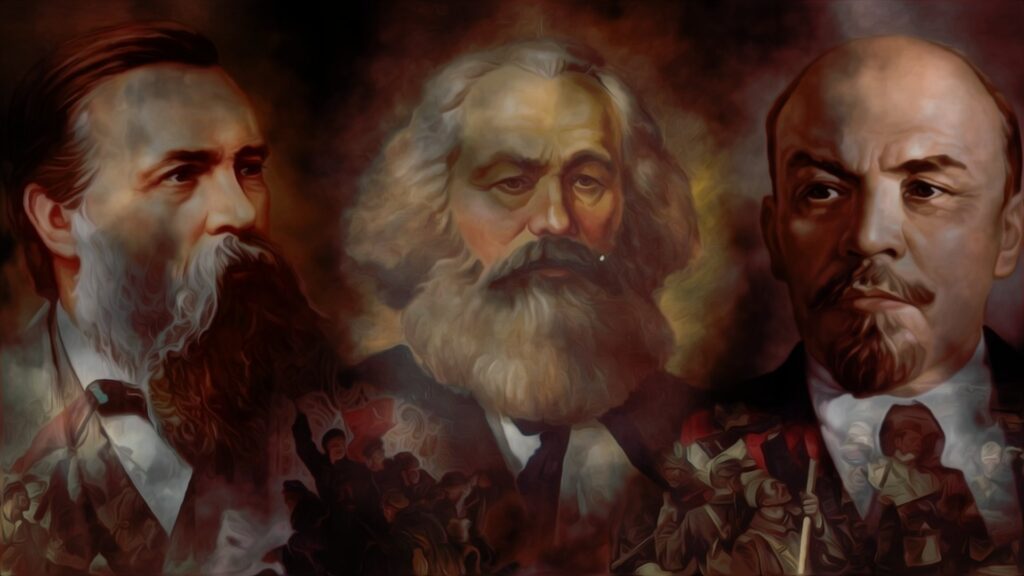Song Chaolong: From Marx to Contemporary Times: The Logical Process of the Concretization of the Outlook on Socialism
Source: Journal of Theoretical Discussion, Issue 1, 2024
January 2024
Author Prof. Song Chaolong (1977) is the vice dean, researcher, and doctoral supervisor in the School of Marxism at Peking University

Abstract: Incorporating the utilization of value forms into the public ownership economic system constitutes the core thread of the concretization of the outlook on socialism from Marx to contemporary times. The actual socialism in Russia began with the partial replacement of the finance capital empire by the democratic revolution in the periphery. Lenin conducted a preliminary concretization of the outlook on socialism, and socialism became an active and dynamic institutional form. This institutional form made use of value forms as well as corresponding forms of ownership under the dominance of public ownership, i.e., commodities, money, capital, state capitalism, etc. were actively made use of. Stalin has interrupted Lenin’s logical thread of concretizing the outlook on socialism. Although Stalin emphasized the utilization of the law of value in economic exchange between state-owned and collectively owned enterprises, Stalin has basically denied the utilization of value forms and their transmuted forms. Sinicized Marxism in China not only utilizes forms such as value, commodities, money, and capital to serve the construction of basic economic system of socialism in practice, but also inaugurated the utilization of value forms into the operation mechanism of the public ownership economy in the practice of creating a socialist market economy. This enabled socialism to make full use of the market and be capable of competing with and contesting international financial capital, thus leading socialism to a new realm in the unprecedented changes of the 21st century.
Keywords: Marx; outlook on socialism; concretization; actual logic
Actual, concrete things are a unity of the general and the particular. The so-called concretization of the outlook on socialism refers to attaching particular determinations that meet specific historical conditions on the basis of the general determinations of socialism and making these particular determinations organically unified with the general determinations. The concretization of the outlook on socialism is to explore the concrete forms by which the general determinations of socialism are actualized under specific temporal and spatial conditions, i.e., to identify a concrete institutional form of socialism in a specific historical period. The concretization of the outlook on socialism must be based on dialectical materialism, absorbing determinations from actual relationships, identifying the relationships between various elements in actual socialist society, reflecting the richness and concreteness of actual socialist relationships, and reflecting a relatively stable social system formed by the interconnection of various aspects in a historical period.
I. Marx’s theoretical system includes the logical clues for the concretization of the outlook on socialism
Although Marx clarified the institutional principles of future socialism and explored the possible existence of capitalistic and semi-capitalistic elements in future socialism, he did not propose a concrete idea of socialist institutional system, which means that Marx’s outlook on socialism was not yet been concretized.
First, Marx’s discourse on the general essence of socialism.
The general essence of socialism is embodied in the productive forces and relations of production, namely the form of division of labor and form of ownership. On the one hand, from the perspective of productive forces and the form of division of labor, socialist society replaces dispersed private labor with social joint labor, achieving the union of labor within the social scope beyond the scope of factories, i.e., replacing the union of indirect labor mediated by exchange and money with the direct social union of labor.
Social joint labor means that individual labor directly functions as social labor, and each person’s labor becomes direct social labor just from the beginning. In social joint labor, the anarchic state of social production will be replaced by planned and conscious organization, besides commodities, value, and value forms will naturally disappear. The amount of social labor contained in products does not need to be identified through the roundabout intermediary of value. On the other hand, from the perspective of the nature of relations of production, i.e., ownership of the means of production, socialism would implement social joint ownership and public ownership of the means of production, and on this basis reconstructs “individual ownership” of the means of life for workers. Only this kind of individual ownership can overcome the alienation and opposition in the relations of ownership, and the “individual ownership” is the ownership that is compatible with individual freedom and individual development.
Socialism, as the unity of the two aspects of productive forces and relations of production, is a new type of mode of production of society, social formation, and a civilizational formation. Marx’s socialism, as it is determined from this general essence, can be seen as pure socialism, which as such requires a long transitional period, also known as ‘big transition’, to be achieved.
Please Download for Full Text
